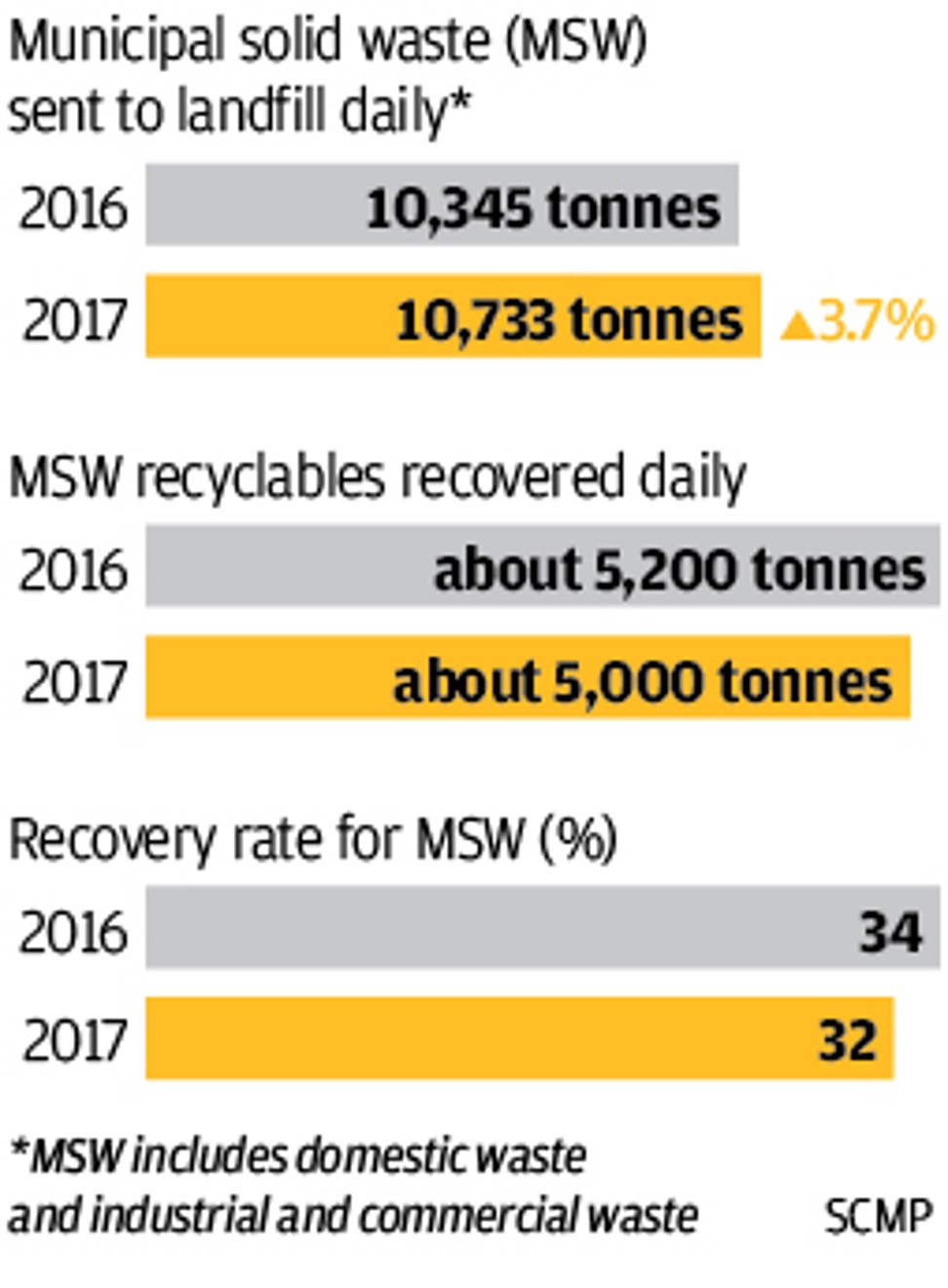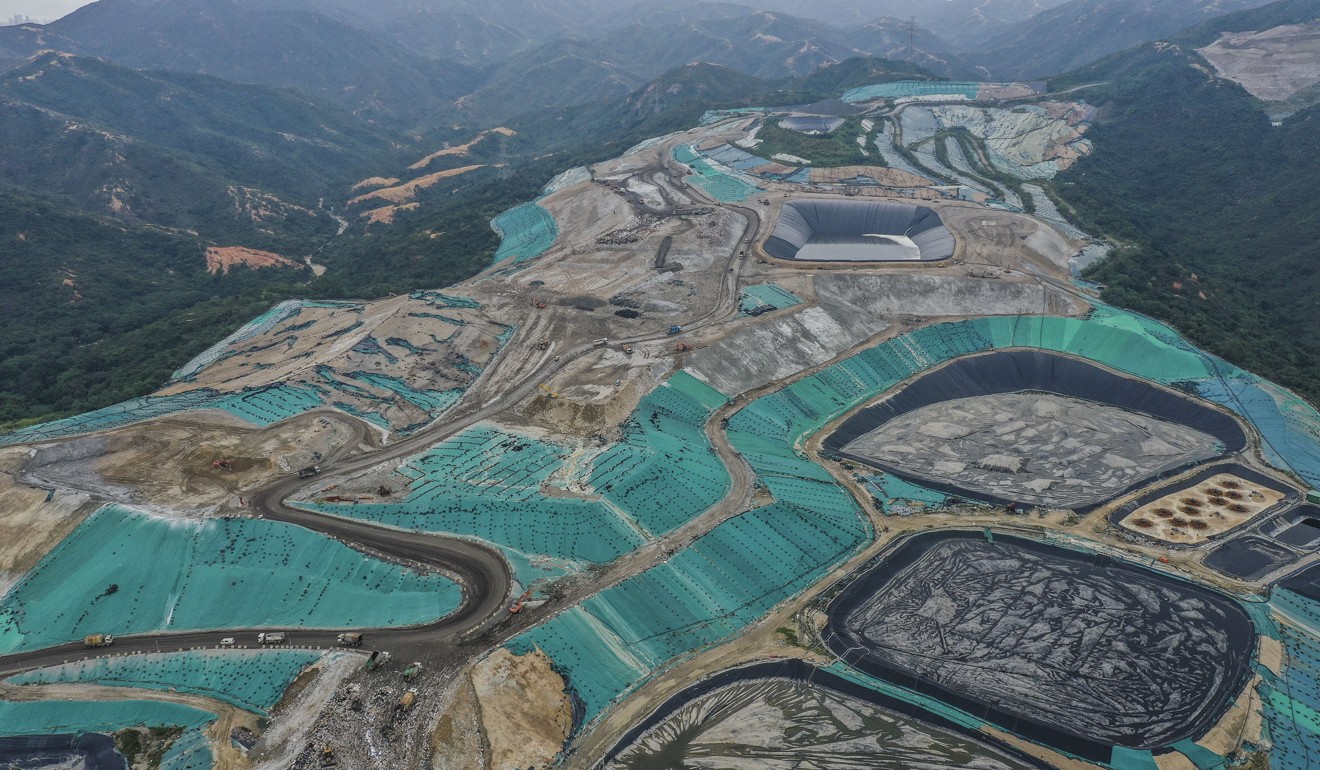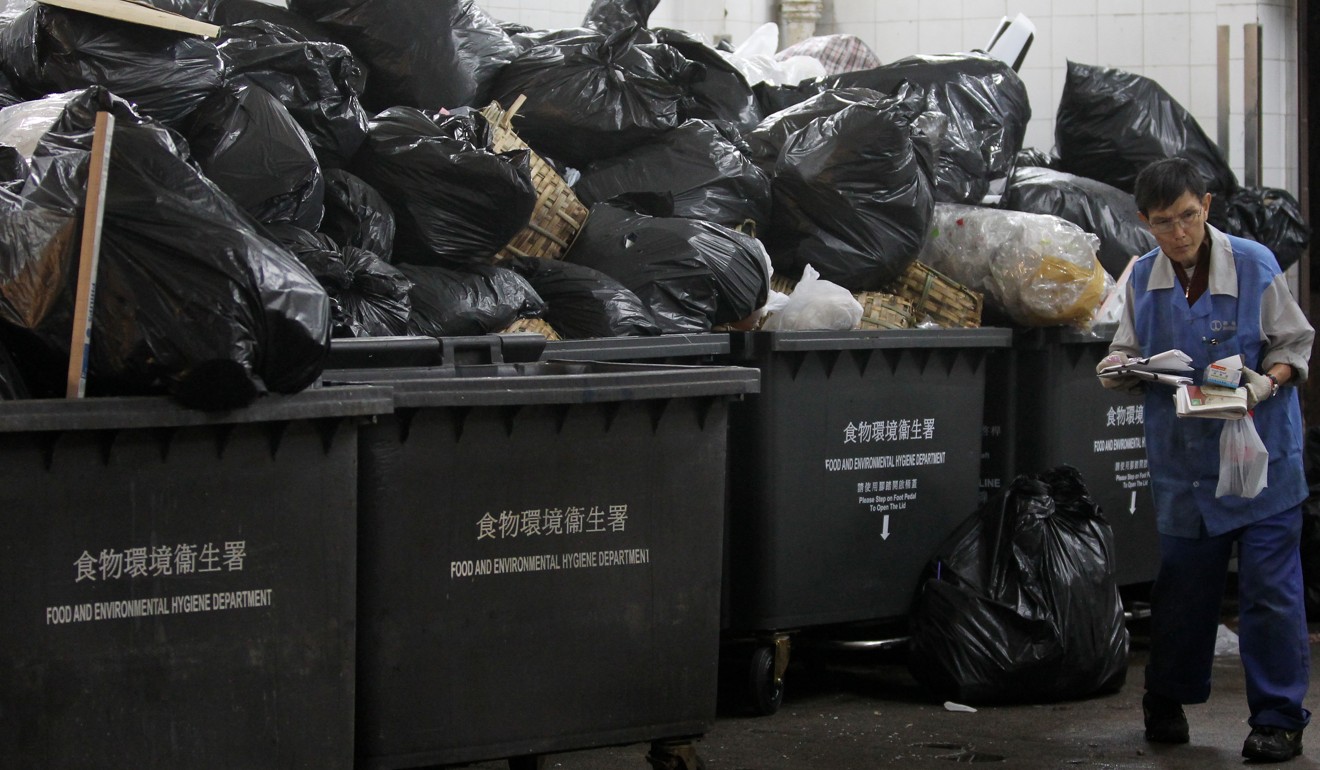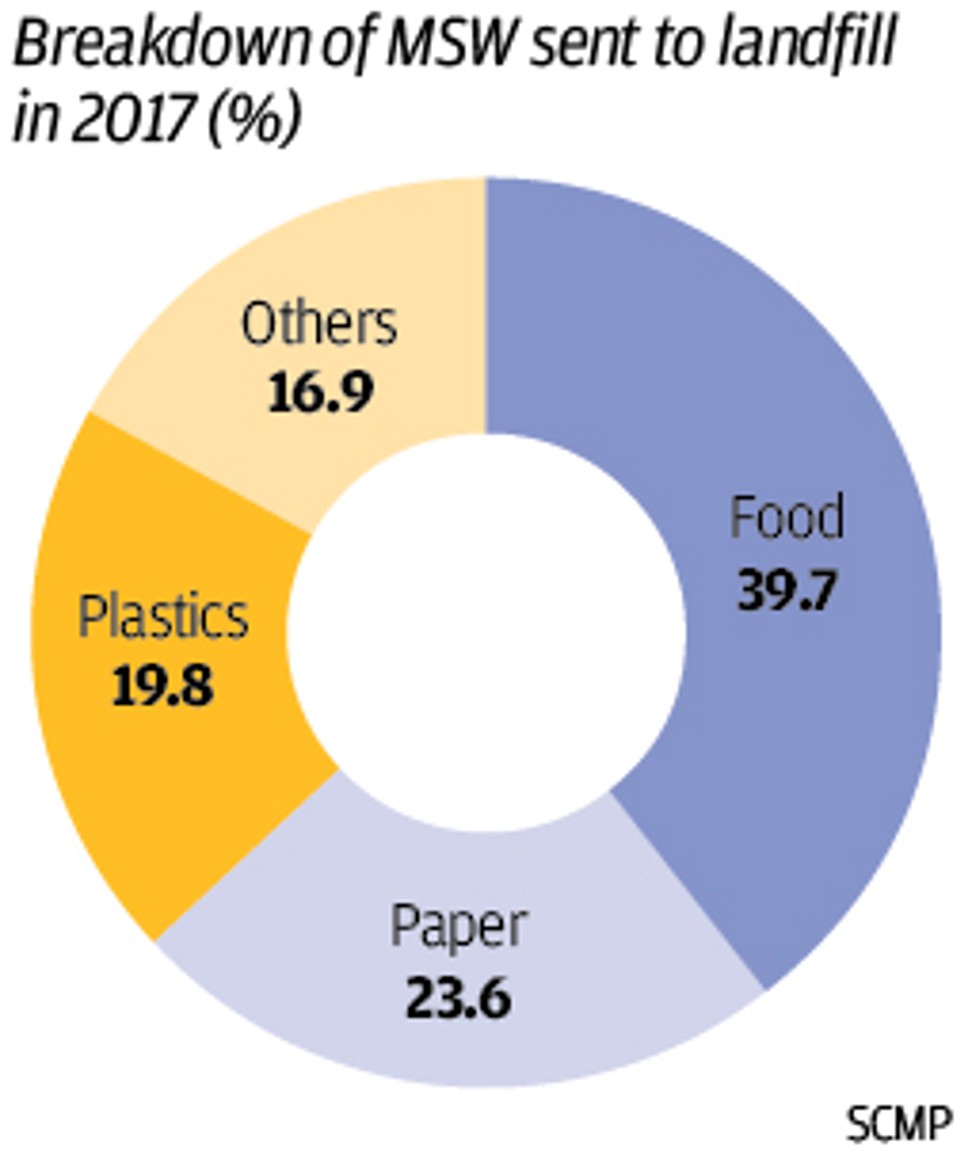
Hong Kong fails to meet midterm waste reduction target, with per capita waste production rising since 2013
- Though domestic waste fell annually by 1.0 per cent, commercial and industrial waste contributed to the increase
- The government is pinning its hopes on the forthcoming waste charge to cut output but critics say it needs to do a lot more to show it can deal with the problem
Hong Kong has failed to meet its midterm waste reduction target, as latest official figures showed that the daily municipal solid waste the average citizen sent into landfills last year had increased 14 per cent from 2013, when the target was set.
The target, introduced in the government’s Blueprint for Sustainable Use of Resources 2013-2022, is for daily municipal solid waste disposed per capita to drop by 20 per cent to 1kg or lower by 2017, and by 40 per cent to 0.8kg or less by 2022.
But statistics released by the Environmental Protection Department on Thursday showed that the indicator stood at 1.45kg last year.
“The increase in the [disposal rate] was partly caused by an increase in the amount of commercial and industrial waste being disposed of, which was partly attributable to a vibrant local economy in 2017,” the department said in a report.

Overall, the city generated 5.75 million tonnes of municipal solid waste – domestic, commercial and industrial – last year, an annual increase of 0.9 per cent.
Although domestic waste fell annually by 1.9 per cent, commercial and industrial waste rose by 4.1 per cent.
Businesses and environmentalists come together to tackle waste issue
The recycling rate of municipal solid waste was 32 per cent last year, down from 34 per cent in 2016.
The department said Hong Kong relied heavily on service industries, and hence had limited capacity to utilise locally recycled materials, so the value of such materials heavily relied on outside markets.

“The challenging condition of the market outside Hong Kong for recyclables that has persisted in recent years, together with stricter import controls imposed by nearby jurisdictions, has continued to affect the overall performance of the recycling industry,” the department said.
Rubbish sacks to double up as shopping bags in waste charging plan
A department spokesman cited Chief Executive Carrie Lam Cheng Yuet-ngor as saying that a proposed municipal solid waste charging scheme would be “central to the government’s overall waste reduction strategy”, providing necessary financial incentives to drive “behavioural and cultural changes”.
In other cities in the region, such as Seoul and Taipei, waste disposal dropped by some 30 per cent in the initial period after a charging scheme was introduced, he said.

The government submitted a bill on the charging scheme to the Legislative Council for scrutiny in November. If the bill is passed, there will be 12 to 18 months for the government, stakeholders and the public to prepare for its implementation.
Hahn Chu Hon-keung, environmental advocacy director of environmental group Green Earth, said the government had “failed the midterm exam” on waste reduction.
“This means the challenge of meeting the reduction target by 2022 will be even greater,” Chu said.
‘Add manpower to tackle dumping amid waste-charge plan’
He said the latest figures reflected that the growth of industrial waste had “gone out of control”, and that the mainland’s restrictions on waste imports had depressed recycling in Hong Kong.
He urged the government to speed up the waste charging scheme, and providing more land and resources for building facilities to recycle plastic, paper and food waste.

Lawmaker Steven Ho Chun-yin, of the agriculture and fisheries sector, said the waste charging scheme could not reduce municipal solid waste by itself, because citizens could not control how much waste they would generate when there was so much overpackaging in the market.
Ho added that the government had not been able to effectively curb illegal dumping after it introduced a charging scheme on construction waste. He said such lack of enforcement efficiency would not give people confidence that the government could handle municipal solid waste charging well.
He urged officials to introduce policies to hold manufacturers accountable for the disposal of their products, as well as to enhance enforcement, while pushing forward the charging scheme.

